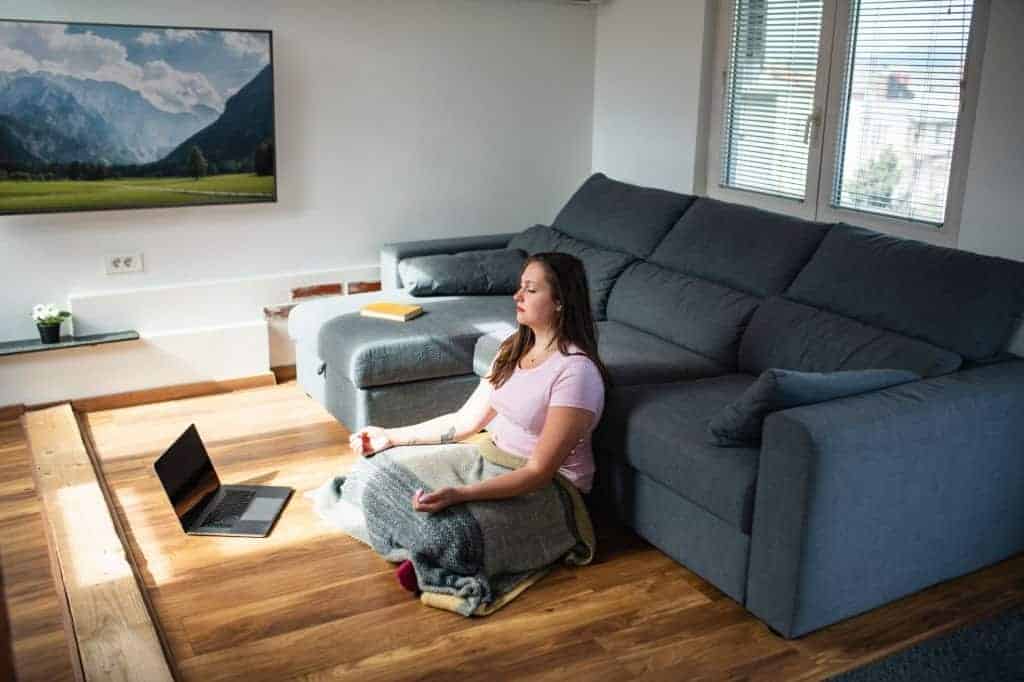Guided Meditation for Healing: Benefits, How To Do This, FAQS

Do you ever feel overwhelmed by the stress of your daily life? Do you ever feel like you’re constantly on the go and don’t have time for yourself? If so, you’re not alone. In this blog post, we will discuss the benefits of guided meditation for healing and relaxation. We will provide a step-by-step guide on how to perform this mindfulness practice, as well as some tips for getting the most out of it that you can use to relax and rejuvenate your mind and body. So if you’re looking for a way to de-stress and unwind, read on!
Guided meditation is best for which people?
Guided meditation is a form of mindfulness meditation that involves following along with a recorded voice or guided visualization. This type of meditation can be helpful for beginners, as it can be difficult to silence the mind without guidance. Guided meditations are also great for people who have trouble focusing or keeping their thoughts from wandering.
Benefits of guided meditation for healing:
1) Reduced stress

When you’re constantly bombarded with stressors, it can be difficult to relax and de-stress. Guided meditation can help by providing a safe space for you to let go of all your worries and tensions. The deep relaxation that comes with guided meditation can help improve your mood and reduce feelings of anxiety and depression.
2) Improved sleep

If you’re struggling with insomnia or other sleep issues, guided meditation can be a helpful tool. The relaxation response that is induced by this mindfulness practice can help you fall asleep more easily and improve the quality of your sleep.
3) Increased concentration
Concentration can be a challenge when you’re dealing with stress and anxiety. Guided meditation can help improve your focus by quieting the mind and allowing you to focus on a single point of attention. This can lead to improved productivity and decreased stress levels.
4) Decreased anxiety
Anxiety can be debilitating, but guided meditation can help lessen its effects. By promoting relaxation and de-stressing the mind, this mindfulness practice can help you feel more calm and collected. Guided meditation can also help to ease other symptoms of anxiety, such as racing thoughts and difficulty concentrating.
5) Promotes self-care
Self-care is critical for maintaining your mental and physical health. Guided meditation can be a great way to promote relaxation and well-being, both on its own and as part of a larger self-care routine. Taking time each day for yourself can help reduce stress levels and improve your overall sense of happiness and well-being.
Also read this article you want to do Chakra Meditation: Chakra Meditation: The Best Ways to Do It in (2022)
If you’re new to guided meditation, don’t worry. We’ll walk you through the basics. Here’s how to get started:
- Find a quiet place where you can sit or recline comfortably. You may want to use a cushion or blanket to make yourself more comfortable.
- Close your eyes and take a few deep breaths, letting go of all tension and stress.
- Once you’re settled, begin to follow the guidance of the recording. Listen to the instructions and let yourself be guided by the voice.
- If your mind starts to wander, simply bring your focus back to the recording.
- When you finish, take a few more deep breaths and slowly open your eyes.
Remember, there is no wrong way to meditate. Just let yourself be guided by the voice or visualization, and don’t worry if your mind wanders at times. The goal is simply to relax and de-stress.
Tips to best mindfulness practice
- Now that you know how to get started with guided meditation, here are a few tips to help you get the most out of this mindfulness practice:
- Set aside sometime each day to meditate. A regular practice will help you see the most benefits.
- Start with shorter sessions and work your way up to longer ones. Even a few minutes of meditation can be helpful.
- Find a comfortable position and stick with it throughout the session. This will help you avoid distractions and stay focused.
Conclusion:
Mindfulness is something that can be practiced and improved with time. It does not matter how you practice it or for how long, as the goal of mindfulness is to simply bring your mind back when it wanders from a single point of attention. If all this sounds intimidating, don’t worry! We’ll walk you through what guided meditation entails in our article on “guided meditation for healing.” You’re sure to find some helpful tips here about creating a regular practice and finding a comfortable position. Let us know if you need help implementing these practices into your daily routine!
FAQS – Frequently asked Questions
What is guided meditation?
Guided meditation is a type of mindfulness meditation that is facilitated by a guide or teacher. The guide will provide verbal instruction and support to help you remain focused and present during your practice. This type of mediation can be helpful for those who are new to mindfulness or for those who would like additional support in maintaining their practice.
What are the benefits of guided meditation?
Guided meditation can offer many of the same benefits as mindfulness meditation, including stress reduction, increased awareness and focus, and improved emotional well-being. Additionally, having a guide can help to ensure that you are practicing correctly and staying present during your session.
How often should I practice guided meditation?
There is no set rule for how often you should practice guided meditation. It is important to find what works best for you and to establish a routine that you can stick with. Some people prefer to practice every day, while others may only do it once or twice a week. As with any form of mindfulness practice, consistency is key.
Can I practice guided meditation on my own?
Yes! You can absolutely practice guided meditation on your own without a guide. In fact, many people find that they are able to establish a more consistent practice this way. If you choose to practice independently, be sure to research different techniques and find one that resonates with you. There are also many guided meditation recordings available online and through apps that you can use to support your practice.
What should I do if I get distracted during guided meditation?
Don’t worry if you get distracted during your practice. This is normal and can happen to anyone. When you notice that your mind has wandered, simply bring your attention back to the guide and the instructions they are providing. It is also important to be patient with yourself and not to judge or criticize yourself for getting distracted.
Can I practice guided meditation if I am pregnant?
Yes, many pregnant women find that guided meditation can be helpful in managing stress and anxiety during pregnancy. However, it is always best to check with your healthcare provider before starting any new mindfulness practice. Pregnant women should avoid positions that are uncomfortable or unsafe, so it is important to choose a guided meditation practice that is suitable for your stage of pregnancy.
More great articles that may be of interest to you 🙂
If you want to learn more information about guided meditation for healing, watch this video: 15 Min Guided Meditation For Healing & Recovery
